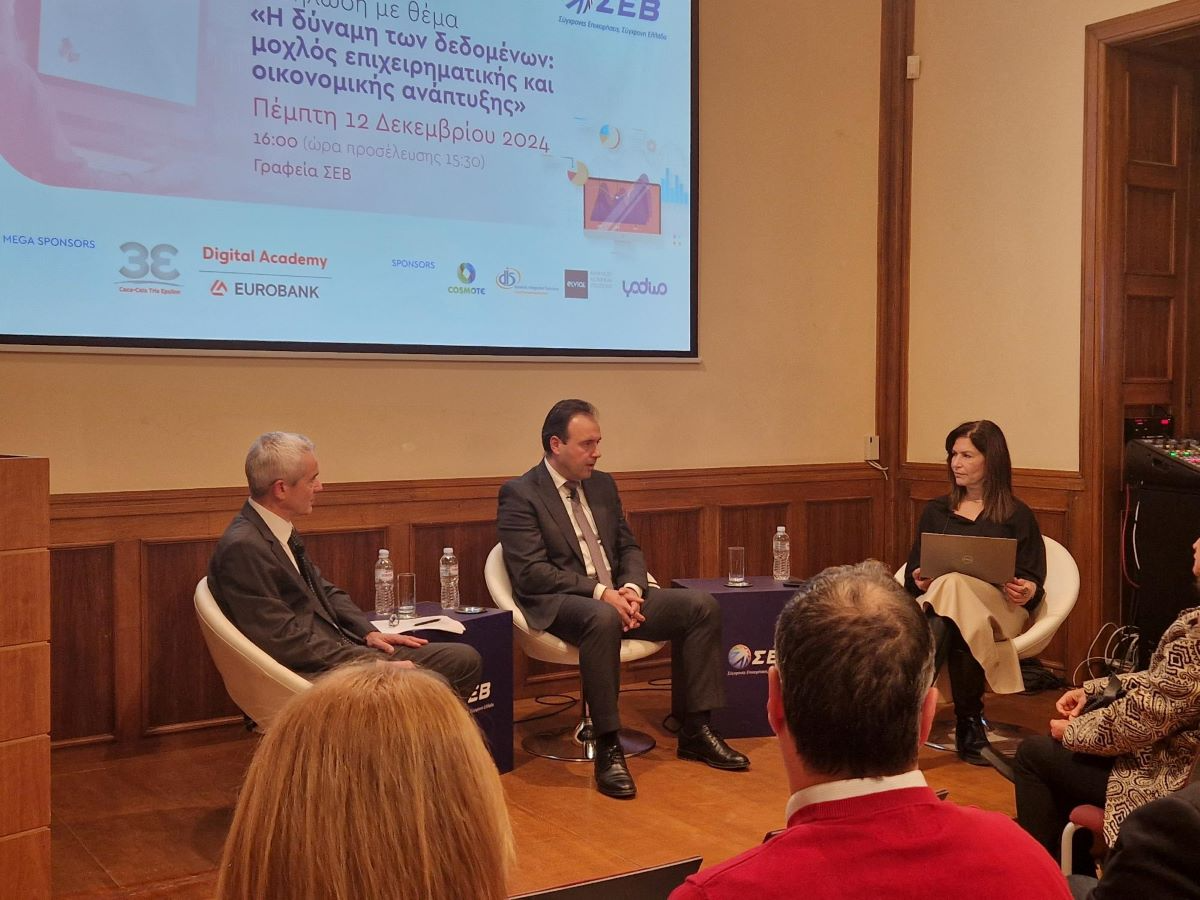
The potential and opportunities from the use of data, the value of open public data, and the developments in the national framework for their management and governance were discussed at the SEV event entitled "The Power of Data: A Driver of Business and Economic Growth.".
The event mentioned, indicatively:
- 86% of companies that systematically use their data are better able to adapt to market changes
- "When companies that are more active in the field of data analysis and data management use their data more efficiently, they are able to exploit their data more effectively.
- 30% increase in cash reserves
- 73% improvement in employee performance and productivity
- 5%-10% lower storage costs
- 50% shorter customer service waiting time
At the same time, the opening of public data:
- boosts 20%-30% product and service innovation
- 10%-30% reduction in costs and administrative burdens
- Reduces costs, costs, and time-to-resolution by 15%-40%
STEM
In our country, it can help enterprises unlock new opportunities, develop innovative products and attract highly skilled talent in STEM fields. It can also help the public sector to enhance the quality of the services it provides.
EVIDENCE-BASED DECISION-MAKING
Rania Aikaterinari, Chair of the Executive Committee and Vice President of SEV, said that "despite the fact that 94% of CEOs understand the value of data, the majority of executives worldwide continue to make 50% of their tactical decisions based on experience or intuition. But businesses that make data-driven decisions reap significant benefits, regardless of size."
According to Ekaterinari, "up to 73% improved employee performance and productivity can be achieved. Significant added value to the Greek economy can also result from the use of open public data. Combined with private sector data, they can lead to an increase of up to 4% of GDP, contributing to a 20%-30% boost in business innovation in fields such as agro-technology and health technologies.".
HARMONISATION WITH THE EUROPEAN FRAMEWORK
Minister of Digital Governance Dimitris Papastergiou referred to the state's initiatives to open up public data securely and in harmony with the European framework for a data economy.
He stressed that "there is no part of our lives, from traffic regulation to civil protection to health to local government, in which we cannot currently gain from data management and artificial intelligence. It's about prioritising these areas and transforming data into solutions and opportunities for citizens and the economy with the help of AI. This is what we are pursuing with AI Factory, starting with data homogenization in health, language models, and climate change and policy protection."
The Minister referred to the incorporation of the European Regulation on Data Governance and the horizontal procedures it introduces in terms of data management and protection, the digitisation of 1.2 billion pages of justice and urban planning documents, as well as a series of projects for training in AI and cybersecurity, preparing public data so that it can be used by AI solutions, and the implementation of the European Regulation, with a total budget of €117 million.
DIGITAL REPRESENTATION OF RESOURCES
The keynote speaker of the event, Thomas Hardjono, CTO of Connecting Science & Engineering at MIT, spoke about the social and economic changes associated with the use of data and focused on the need for citizens to control their data while trusting the results of AI algorithms. He cited the example of the creation of a digital identity in India, which acted as a catalyst for the national payment and transaction system, describing the digital representation of goods, services and monetary instruments (tokenisation) as vital for the future of the digital economy. "The digital representation of assets (tokenization of assets) has a central role in the digital economy. It is important to mention that collaborative data infrastructures are essential to support the new forms of digital commerce that are gradually emerging," he said.






